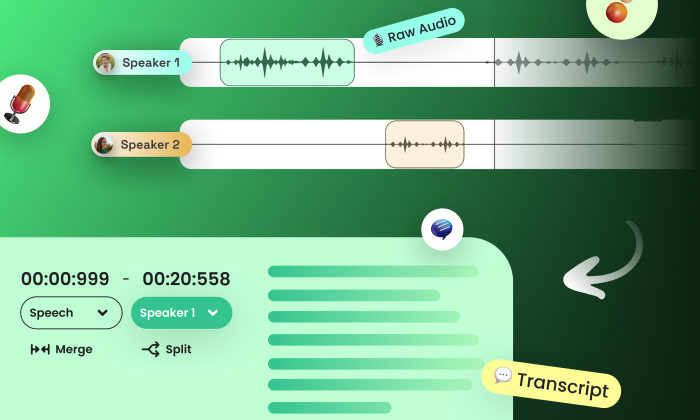How do you handle personal health information (PHI) in in doctor dictation dataset?
Data Security
Healthcare
Speech AI
Managing Personal Health Information (PHI) is vital for trust and compliance in healthcare datasets, especially in the context of doctor dictation datasets. These datasets, consisting of clinical voice recordings where healthcare professionals document patient information verbally, must adhere to strict compliance protocols to protect sensitive data. At FutureBeeAI, we prioritize safeguarding PHI through well-defined processes, ensuring the privacy and security of sensitive medical data while supporting AI advancements in healthcare.
Why PHI Matters in Doctor Dictation Datasets
PHI encompasses any health information that can identify an individual, such as names, birth dates, and medical records. Proper handling of PHI is crucial not only for legal compliance with regulations like HIPAA and GDPR but also for maintaining trust among patients and healthcare providers. This trust is essential for the ongoing collection and utilization of high-quality clinical data in AI applications.
Key Strategies for Managing PHI
1. PHI-Free Collection Protocols
We start by training our contributors to omit identifiable information during dictation. This includes avoiding names, specific dates, and other personal details. By focusing on PHI-free data collection, we minimize privacy risks right from the start.
2. Advanced De-identification Techniques
When PHI might be included, robust de-identification methods are employed. The Safe Harbor method removes 18 specific identifiers, while Expert Determination assesses identification risks based on data context. These techniques allow the datasets to be used safely in AI applications without compromising patient privacy.
3. Compliance and Informed Consent
Compliance is at the heart of our operations. We obtain explicit, informed consent from all data contributors, ensuring they understand how their data will be used, stored, and shared. Contributors are also informed of their right to withdraw consent at any time. Regular audits ensure our practices remain aligned with current laws and best practices.
4. Rigorous Quality Assurance Processes
Our multi-layered QA pipeline includes automated PHI checks during transcription, flagging any potential identifiers. A two-pass review system involving medical linguists and clinicians ensures accuracy, with a focus on correct medical terminology without retaining PHI.
5. Anonymization Before Delivery
Before delivering datasets to clients, we conduct a final PHI check. This ensures all audio and transcripts are de-identified, retaining only the necessary information for AI training. Comprehensive logs document the de-identification process for accountability and transparency.
Real-World Application and Success
At FutureBeeAI, our Yugo platform has helped teams achieve over 95% compliance success in PHI audits, demonstrating the efficiency and reliability of our protocols. By building a culture focused on compliance, we ensure respect for patient privacy while advancing healthcare technologies.
Conclusion: Ensuring Compliance and Protecting Patient Privacy
Handling PHI in doctor dictation datasets is a nuanced challenge that requires robust protocols for data collection, processing, and storage. By implementing these strategies, organizations can effectively safeguard sensitive health information while leveraging the invaluable insights that these datasets provide for advancing healthcare technologies. This commitment to maintaining patient confidentiality supports both regulatory compliance and the integrity of AI applications in the medical field.
FAQs
Q. What is the Safe Harbor method for de-identifying PHI?
A. The Safe Harbor method involves removing 18 specific identifiers from health information, such as names and medical record numbers, ensuring the data cannot be traced back to an individual.
Q. How can organizations ensure compliance with PHI regulations?
A. Organizations can ensure compliance by establishing clear data handling protocols, obtaining informed consent from contributors, conducting regular audits, and implementing a robust quality assurance process to detect and manage PHI effectively.
What Else Do People Ask?
Related AI Articles
Browse Matching Datasets
Acquiring high-quality AI datasets has never been easier!!!
Get in touch with our AI data expert now!








